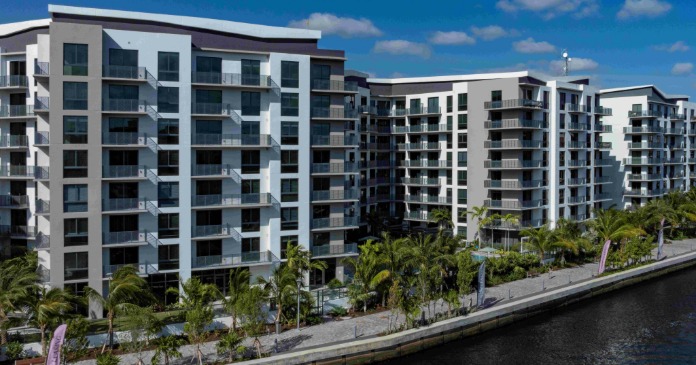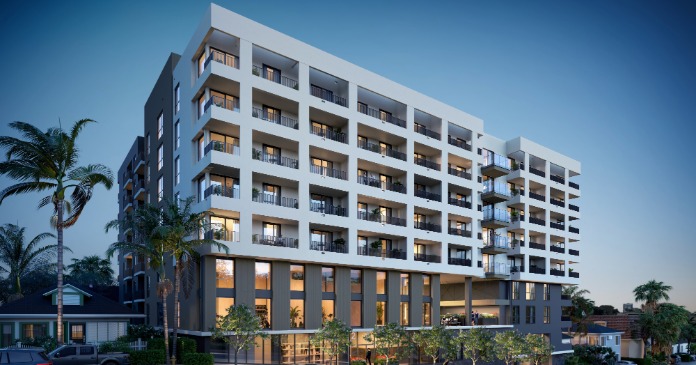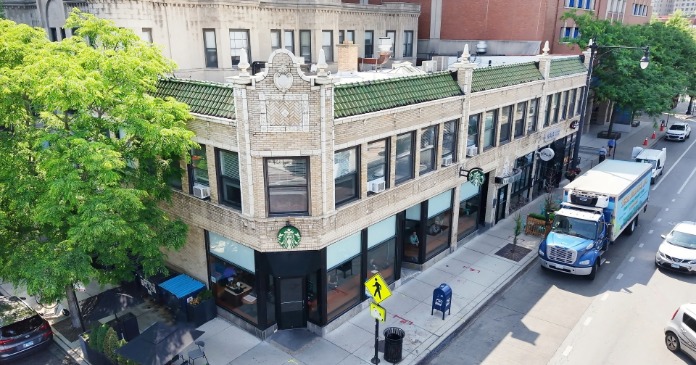The Freddie Mac Multifamily Apartment Investment Market Index (AIMI®) rose by 2.4 percent in Q1 2019 as mortgage rates fell and net operating incomes (NOI) continued their decade-long rise. The annual change in the index remained negative (-2.9 percent) due to rising mortgage rates throughout 2018 and the continued upward trajectory of property prices, which are negatively correlated to AIMI.
“The story of the multifamily asset class throughout the past decade has been one of stability and strength, and AIMI continues to illustrate this,” said Steve Guggenmos, vice president of Freddie Mac Multifamily Research and Modeling. “The Q1 growth in the index was largely attributable to falling rates, but growth in net operating incomes and a marginally slower rate of property price growth were also factors. The index is down somewhat compared to this time last year, but overall AIMI shows a healthy market.”
Over the quarter, AIMI increased for the nation and in every market.
- NOI grew in the nation and in all markets except for New York. However, this NOI growth was not substantial; the nation grew by only 0.5 percent. Phoenix posted by far the largest quarterly NOI growth of 3.2 percent – nearly 3 times higher than the next largest increase (San Francisco, 1.1 percent).
- Property prices grew in the nation and in all markets except Seattle. Again, Phoenix performed far better than the next highest metro (4 percent vs 2 percent in DC).
- Mortgage rates decreased by 22 basis points. The shift was comparable in size with last quarter when rates increased by 19 basis points.
Over the year, AIMI decreased in the nation and in 11 of 13 metros.
- Chicago and New York were the only metros that posted gains. The decline was not major for any metro. In past quarters, several metros have had AIMI contract by 10 percent+ but this quarter the worst performing metro, Orlando, contracted by only 7.9 percent.
- NOI grew in the nation and in all markets. Aside from Houston which grew by only 0.3 percent, all markets and the nation grew by at least 2.7 percent.
- Property prices grew in the nation and in all markets except for New York.
- Mortgage rates increased by 29 basis points. Although this is a large increase, the prior three quarters have seen even larger ones.
In addition to national and local values, a sensitivity table is available that captures how the index value adjusts based on changes in certain underlying variables. Additional information about AIMI is on the Freddie Mac Multifamily website, including FAQs and a video.
AIMI is an analytical tool that combines multifamily rental income growth, property price growth and mortgage rates to provide a single index that measures multifamily market investment conditions. A rise in AIMI from one quarter to the next implies an increasingly favorable environment for multifamily investment opportunities, while a decline suggests that attractive investment opportunities are becoming more difficult to find compared with the prior period.
Freddie Mac Multifamily helps ensure an ample supply of affordable rental housing by purchasing and securitizing mortgages on apartment buildings nationwide. Roughly 90 percent of the mortgages purchased support rental units for households earning 120 percent of area median income or below. Freddie Mac securitizes about 90 percent of the multifamily loans it purchases, thus transferring the majority of the expected credit risk from taxpayers to private investors.













